
Advertise on podcast: My New Life
Rating
4.9 from
Country
This podcast has
83 episodes
Language
Publisher
Explicit
No
Date created
2020/04/01
Average duration
25 min.
Release period
35 days
Description
The early years of a child’s life are the most important for their long-term development. Sometimes, the abundance of information out there can feel overwhelming and difficult to navigate. My New Life is here to support parents and help make sense of the science behind early learning. I’m Jessica Rolph, mother of three and CEO of Lovevery. With the help of experts from around the world, we break down all the child development science into usable nuggets of knowledge that you can put to the test in your own home.
Social media
Check My New Life social media presence
Podcast episodes
Check latest episodes from My New Life podcast
When parenting feels unequal
2023/11/27
Our guest today is a mother of four children, ages 5 to 17. She knows well how the demands of parenting can run you into the ground. She made the choice to step off the “struggle bus of overwhelm” — as she calls it — but it was a move that took time, and conscious effort.
The secret? Establishing clear boundaries. And choosing not to identify with the “mother as martyr” role. So many of us look for our partners to validate how hard we are working, before we give ourselves permission to delegate and take a break. Or hold onto resentment because we feel we are shouldering more than our fair share of the parenting burden.
In this episode, Julie Tenner gives us permission to ask: What do I need to show up as the best version of myself in this family? She is an Australian-based relationship expert who shares her wisdom as co-host of the podcast Nourishing the Mother. You can also find her at julietenner.love.
Takeaways:
If you find yourself resenting the people you love, it’s a sign you need to re-enforce your boundaries. Score-keeping is something we slip into when we’re feeling under-valued. Time to have a conversation with your partner about what you need out of each of your roles.
This conversation around roles is constantly shifting. Revisit the agreements you make regularly because our needs as adults shift with the changing children around us. Julie likes to think about it as tending to the you, to the me, to the us and to the family inc.
Julie talked about setting limits around breastfeeding and the inevitable resistance that a mother will come up against. Responding to your baby’s cries from a loving place, firm in your boundaries, can sound like: “Yeah, it’s really hard for you. I know you really want to have a feed, but I can’t give that to you right now, but I love you and I’m here.”
Julie is a big fan of delegating. She reminds us that when delegating, we need to let go of how the task is executed. It’s not going to look exactly like it would have, if you had done it. But we can’t do this work on our own, so time to lean into the team!
Mentioned in this episode:
Brought to you by Lovevery.com
Find Julie Tenner at julietenner.love
Receive weekly emails about your child’s development, and stay in the know about new play essentials, promos, and more by signing up at Lovevery.com
Follow Lovevery and Jessica Rolph on Instagram
more
Helping children deal with change
2023/11/20
Why can change be so unsettling for our toddlers? I mean, change up the snack crackers and you may have a major crisis on your hands. On this episode of My New Life, Jessical Rolph hosts Lael Stone, author of “Raising Resilient and Compassionate Children”. Never is our resilience put to the test more so than in the face of change.
If you and your family are changing things up — be it a new home, new caregiver, or a new school, Lael will help you navigate what can be tricky terrain with your child. In addition to her work as a parent educator, she is a mother of three. You can find Lael @laelstone.
Takeaways:
A great way to ease children into a big change (or even a smaller transition) is to create pictures and talk through what’s going to happen, who’s going to be there, and how it’s going to look. For those children that thrive on information, this dispels some of the anxiety around uncertainty.
Make an effort to view change through the lens of your child. Even something like a visit to a new playground can feel scary. Meet their concerns with empathy and compassion rather than attempting to fix the situation, or justify why it’s no big deal.
Children process what’s going on around them through play. Help your child to explore changes by creating a similar scenario with their favorite toys. It’s a great time to ask questions like: How do you think Teddy is feeling about moving to a new home?
Change often makes children feel powerless. Try a power reversal game to restore some sense of power. This is a game where your child gets to be faster or stronger or know more than you do!
Mentioned in this episode:
Brought to you by Lovevery.com
Find Lael Stone @laelstone
Receive weekly emails about your child’s development, and stay in the know about new play essentials, promos, and more by signing up at Lovevery.com
Follow Lovevery and Jessica Rolph on Instagram
more
Managing expectations as a mother
2023/11/13
For the most part, limits provide a framework that helps everyone move through the day more fluidly, and with less friction. But on this episode of My New Life, we discuss limiting beliefs — beliefs that interfere with our own wellbeing and that of our family.
A big one is the notion that we can “have it all”. For parents who work outside the home, this can compound the pressure we already feel to be in more than one place at a time. And for parents who work inside the home, the line between family and professional needs gets easily blurred. Leaving everyone wondering: Am I a good enough fill-in-the-blank… parent? employee? boss?
Psychologist and motherhood coach Yara Heary knows this dance all too well, and she’s here to help us explore how these limiting beliefs show up for us, because being aware of these thoughts is the first step toward changing them. You can find Yara @lifeafterbirthpsychology.
Takeaways:
Host Jessica Rolph shared one of her own limiting beliefs: I’m not a present enough parent. Yara encouraged her to look at the standard to which she’s measuring her worth as a mother. Where did that standard come from? What is enough? This goes for any of the limiting beliefs we have.
Yara ascribes to the notion that you can have it all, but not all at the same time. There are seasons when one or another role is going to take priority. Give yourself permission to settle into the current role, knowing that there will come a time when you can switch hats.
When caring for young children, it can often feel like you haven’t “achieved” much. But that comes down to what we perceive as meaningful. If you write down all that you’ve ticked off in a day, it may be easier to re-evaluate those tasks as meaningful, valuable care-taking.
If you’re working outside the home and finding the separation painful, focus on 10 minutes of special time with your child each day. This is a time where the phone is out of reach and you’re following your child’s lead. If your child has trouble saying goodbye when you leave for work, talk about this special ritual you will have, when it will happen and what it will look like.
Mentioned in this episode:
Brought to you by Lovevery.com
Find Yara Heary @lifeafterbirthpsychology
Receive weekly emails about your child’s development, and stay in the know about new play essentials, promos, and more by signing up at Lovevery.com
Follow Lovevery and Jessica Rolph on Instagram
more
Expert in neurodiversity Dr. Billy on emotional regulation
2023/10/30
We welcome Dr. Billy Garvey to this episode of My New Life. He runs a clinic in Melbourne, Australia, that helps parents focus on their children’s strengths, and move through some of their challenges.
The clinic has a 3-year waitlist and after listening to this episode, you’ll understand why: Dr. Billy is really good at helping caregivers and children connect in those moments when stronger limits are needed. He works with a lot of neurodiverse children, and brings that adaptive lens to our conversation. Dr. Billy is @drbillygarvey and has his own podcast, Pop Culture Parenting.
Takeaways:
When your child is elevated — hitting or lashing out — it’s not the time to build skills. Our role in that moment is to show them they are safe. Rather than instructing them to “settle down,” take that moment to be a calming presence for your child.
You might be thinking: I can’t believe that set them off! But Dr. Billy reminds us that the same sensitivity that feeds the emotional dysregulation also makes them really receptive to positive feedback — so focus on their strengths and harnessing those. Look for opportunities to praise them when they are interacting positively with a sibling or doing what they’ve been asked.
Struggling to get out the door in the morning? See if you can chunk the larger request into smaller ones. For example, start with a specific 2-step direction (put on your socks and shoes) and, once that is mastered, you can move onto more steps.
If your child is repeating a behavior that you’d like to see less of, be sure to give them an alternative rather than simply asking them to stop. If the behavior involves another child, create some distance, whenever possible. They need time to cool off.
Mentioned in this episode:
Brought to you by Lovevery.com
Find Dr. Billy Garvey @drbillygarvey
Receive weekly emails about your child’s development, and stay in the know about new play essentials, promos, and more by signing up at Lovevery.com
Follow Lovevery and Jessica Rolph on Instagram
more
Helping siblings with boundaries
2023/10/23
Bickering, fighting, jealousy, constant comparison and competition — sibling rivalry can be exhausting. Here to help us reduce the conflict between our children is parent educator, Kristin Mariella. Her approach is to hold the limits, while welcoming the waves of emotion. You can find more from Kristin Mariella @respectfulmom.
Takeaways:
Hold your tongue! Kristin urges parents to resist getting involved with sibling conflict, as long as there is not a safety issue. Even with the best of intentions, adult interference creates resistance and it sends the message of mistrust.
Welcome the big emotions your siblings have toward one another. It’s OK if they’re not the best of friends — and their relationship will shift over time. By normalizing disagreements, you will diminish the tension in the sibling relationship.
Avoid fostering competition. For example, asking your children to race to the car has a tendency to pit one child against another. Instead, have them compete against you. Play the part of the clumsy adult and you're bound to bring some humor to the situation.
Do your best to avoid equalizing things, particularly when it comes to food. Kristin reminds her children: “We never count food.” If you’re forever equaling out portions, you are sending the message that your children should look to their sibling’s plate to see if they have enough, rather than listening to their body.
Mentioned in this episode:
Brought to you by Lovevery.com
Find Kristin Mariella @respectfulmom
Receive weekly emails about your child’s development, and stay in the know about new play essentials, promos, and more by signing up at Lovevery.com
Follow Lovevery and Jessica Rolph on Instagram
more
Behavior is a smoke alarm
2023/10/16
There are lots of parenting experts talking about choosing connection over discipline, but today’s guest on My New Life has a fresh take on limit-setting: She compares bad behavior to a smoke alarm going off. Punishment is like taking a hose and pointing it at the alarm. If the pressure is great enough, the alarm will stop. But we still don’t know why it went off in the first place. We need to find the fire!
Obstetric Social Worker and Parent Educator Genevieve Muir joins Host Jessica Rolph to provide tips on finding the origin of these emotional flare ups. You can find Gen @connectedparentingau.
Takeaways:
Gen reminds us that you need to name it to tame it. There’s no modifying challenging behavior without figuring out the root cause.
No matter what the behavior, children are never choosing to get it wrong. If they’re acting out, chances are good they need more connection with you. They are seeking that connection 24 hours a day, and they will seek it any way they can.
If your child’s not okay, they probably don’t want us to fix it or solve it or make it better. They actually just want us to acknowledge their struggle: “You’re really not happy about the Nutella, huh?” It’s as simple as that. Or, for an older child, you can dig a bit deeper: “I can see you’re really struggling with this Nutella and I’m wondering if you’re a little bit nervous about going to a new camp today? That can feel scary.”
Gen likes the phrase “I won’t let you hit” rather than something like “in this family, we don’t hit”. Not only does it clearly communicate to the child that they have crossed a boundary, it reminds you that your role is now to step in and keep everybody safe. She says setting boundaries with toddlers is most effective with a calm, but very much in control, physical presence.
Remember, one-on-one time can go a long way toward diffusing sibling conflict. Rivalries generally stem from a child feeling like they aren’t getting enough of your attention.
Mentioned in this episode:
Brought to you by Lovevery.com
Find Gen Muir @connectedparentingau
Receive weekly emails about your child’s development, and stay in the know about new play essentials, promos, and more by signing up at Lovevery.com
Follow Lovevery and Jessica Rolph on Instagram
more
What you should know about men's and women's fertility
2023/07/31
When it comes to starting or growing a family, many of us come face-to-face with a painful reality: Infertility. Even if you had an easy time conceiving, it doesn’t guarantee subsequent pregnancies will be just as easy.
Problems in men’s bodies are the cause of around half of all infertility. Does that statistic shock you? That could be because women of child-bearing age are bombarded with marketing for expensive fertility supplements and treatments, while men remain largely in the dark about their reproductive health. Women’s lifestyle choices—what they eat, drink, and use on their bodies—are scrutinized and judged. Yet sperm is influenced by the same lifestyle factors.
Here to educate us on fertility for both men and women, is Leslie Schrock, top-selling author of the modern guide to pregnancy “Bumpin’”. She has now written a second book called “Fertility Rules”. Learn more about Leslie’s books @leslieschrock.
Takeaways:
Men are just as likely as women to have health complications that contribute to infertility. The good news: There is a lot that men can do to improve their sperm supply because they regenerate it so frequently.
The first step, says Leslie, is to book a preconception appointment. Have an honest conversation with your doctor about any medications or supplements you may be taking. Some people think that supplementing with testosterone will make a man more fertile, but it actually drops a man’s semen parameters.
Leslie recommends only two supplements for women and men trying to conceive: CoQ10 and a prenatal vitamin with folic acid. She cautions women away from products that claim to regenerate your egg supply, which is not medically possible. Focus instead on optimizing your overall health.
It takes an average of three IVF cycles for a couple to have a baby. But fertility treatments rarely start there. Leslie spoke about kits for at-home insemination as well as timed intercourse as a first step you can try at home.
While breastfeeding shouldn’t be relied upon for birth control, if you’re breastfeeding and trying to conceive, your body is not going to put its best foot forward to facilitate a second pregnancy. This is because the priority is feeding the human relying on your milk supply.
When supporting those who are experiencing infertility, Leslie reminds us to listen. There is no greater gift.
Mentioned in this episode:
Brought to you by Lovevery.com
Find Leslie Schrock @leslieschrock
Receive weekly emails about your child’s development, and stay in the know about new play essentials, promos, and more by signing up at Lovevery.com
Follow Lovevery and Jessica Rolph on Instagram
more
When and how to stop breastfeeding
2023/01/11
Host Jessica Rolph breastfed all three of her children, but weaning the last has been an emotional experience. It’s hard to say how many mothers breastfeed beyond that first year or two, but often those mothers feel judged for choosing to continue.
Lyndsey Hookway joins us to help demystify “extended” breastfeeding and offer tips on weaning for those who are ready. She is an Internationally Board Certified Lactation Consultant for The Maternity Collective, based out of the UK.
Highlights:
[1:14] Why do we refer to breastfeeding beyond age 2 as “extended”?
[3:15] Jessica shares her personal experience feeding her daughter, even though it’s clearly not a nutritional experience anymore.
[5:14] What are some of the benefits to the nursing mother?
[7:02] Can breast milk lose some of its nutritional value over time? As volume decreases, why does the child still want to suck?
[8:30] If a mother wants to continue breastfeeding her toddler when a newborn arrives, is there any reason why she shouldn’t nurse both children simultaneously? What does the science say about this?
[11:20] Tender breasts are common with pregnancy and often initiate a natural weaning process.
[13:11] Is there an optimum period to wean your child?
[16:13] Lyndsey talks about hormonal fluctuations that can cause sadness after weaning, as well as temporary difficulty sleeping.
[18:09] How to handle a toddler who keeps asking to be breastfed at night?
[21:03] What is step one for a mother who wants to start the weaning process?
[23:21] Lyndsey shares some additional tips for weaning during the day.
[26:10] What to do if you’re feeling anxious about the weaning process.
[28:54] Jessica shares takeaways from her conversation with Lyndsey Hookway.
Mentioned in this episode:
Brought to you by Lovevery.com
Find Lyndsey @Lyndsey_Hookway
Receive weekly emails about your child’s development, and stay in the know about new play essentials, promos, and more by signing up at Lovevery.com
Follow Lovevery and Jessica Rolph on Instagram
Listen to Perspectives on feeding: Baby-led weaning with Jenny Best
more
Transitioning from crib to bed
2022/12/28
Switching your child from a crib to bed can be a big milestone! Most sleep experts recommend waiting until your child is around three years old.
Jessica Rolph, your host, is joined by Dana Obleman to discuss what factors might go into that timing. Dana is an Infant and Child Sleep Consultant and the creator of The Sleep Sense Program.
Highlights:
[1:08] What are the signs that your child is ready to make the switch from a crib to a bed?
[1:50] What should parents do when their child is climbing out of the crib?
[3:30] How much weight should parents give to their children's request to be in a big bed?
[4:39] Night training in a bed: Will your child keep you up all night with requests to go to the potty?
[6:13] What can parents do when their child is potty trained during the day but not as confident at night?
[8:02] If parents are welcoming a new sibling and want to use the crib for the baby, how should they manage this situation with their toddler?
[9:45] Is there anything parents can do to make the crib more comfortable for an older child?
[11:17] How can you best prepare a child for this transition?
[13:11] What kind of bed does Dana recommend parents transition to?
[14:06] How concerned should parents be about the child rolling out?
[14:56] What kind of child-proofing needs to happen when a child has access to the bedroom at night?
[16:14] What are some positive ways to handle night waking?
[17:43] Dana speaks about co-sleeping.
[19:52] Does Dana have tips for parents that were co-sleeping and now making the switch?
[21:09] Dana explains why sleep is a skill.
[21:58] Jessica shares the key takeaways from her conversation with Dana Obleman.
Mentioned in this episode:
Brought to you by Lovevery.com
Receive weekly emails about your child’s development, and stay in the know about new play essentials, promos, and more by signing up at Lovevery.com
Follow Lovevery and Jessica Rolph on Instagram.
more
Co-parenting after a separation
2022/12/14
Navigating the ups and downs of divorce looks different in each situation, but there are some universal ways to make it easier on our children. These start with better communication — rules around communicating that put your child first.
Here to help us establish some of these best practices is Dr. Tamara Afifi, a professor in Interpersonal Health Communication at the University of California, Santa Barbara. Her TedX Talk The impact of divorce on children has been viewed some 700,000 times.
Highlights:
[1:29] What are the most common issues that you see with families confronting divorce?
[2:34] What kind of communication is not positive for children?
[3:59] How does divorce affect children in the short-term?
[5:06] What can divorced parents do to support their children’s resiliency over time?
[6:25] What are some best practices for divorced parents?
[9:47] A listener shares a question about maintaining consistency when it comes to childcare.
[11:45] How does divorce impact young children differently?
[13:18] We are closer to our children than in previous generations. How has this changed the way that children experience divorce?
[14:30] How can we differentiate between a divorce-related behavior and something else that might need to get addressed?
[16:07] Tammy zooms the lens out and offers some perspective.
[18:58] Jessica shares her top takeaways.
Mentioned in this episode:
Brought to you by Lovevery.com
Receive weekly emails about your child’s development, and stay in the know about new play essentials, promos, and more by signing up at Lovevery.com
Follow Lovevery and Jessica Rolph on Instagram
more
Talking about death
2022/11/30
Birthing is a topic we all want to weigh in on, but death? Not so much. We tend to avoid the subject, and when it comes to talking to our child about death, choosing the right words is hard. Of course, there’s no “right” way to talk about death except to lead with honesty and love.
Jessica Rolph, your host, welcomes Michele Benyo to the show. She is the founder of Good Grief Parenting. Michele came to this work in the wake of losing her child 20 years ago and helping his sibling through the grief. Today, Jessica and Michele discuss how parents can support their children through the death of a pet or loved one.
Highlights:
[1:26] What do parents need to know about how children grieve?
[3:13] How can parents help a grieving child?
[4:30] Michele gives examples of some mistakes parents make when discussing death with children.
[6:53] How can parents begin to use direct language to talk about death with their children?
[9:19] How does grief manifest through play?
[11:41] A question from the Lovevery community: “How do you answer: Are Grandma and Grandpa going to die? Followed by, Are you and Daddy going to die?”
[13:52] When do children start to understand death?
[15:27] How can we prepare our children for the death of someone who is close to death?
[17:10] Another question from a listener: “How do I incorporate family members who died into my son’s life at 7 months old? How do I explain to him that they’re no longer here, but they love him very much?”
[20:11] Ways to approach the death of a pet.
[22:47] How should we prepare children for a funeral?
[25:08] Jessica shares her takeaways from the conversation with Michele Benyo.
Mentioned in this episode:
Brought to you by Lovevery.com
Good Grief Parenting
Receive weekly emails about your child’s development, and stay in the know about new play essentials, promos, and more by signing up at Lovevery.com
Follow Lovevery and Jessica Rolph on Instagram.
more
Pacifiers: In or out?
2022/11/16
Pacifiers are so convenient… until they’re not. At some point, there can be concerns about developing teeth and interference with speech, and weaning a child off a pacifier can be challenging.
The American Academy of Pediatric Dentistry, the American Academy of Pediatrics, and speech and language therapists recommend starting that weaning process between 6 to 12 months, and weaning entirely before a child’s third birthday.
To guide us through that transition, My New Life host Jessica Rolph welcomes Dr. Amy Conrad to today’s episode. Dr. Amy is a mother to a 10-month-old, a Lovevery customer, and the host of the Ask Doctor Amy podcast.
Highlights:
[1:19] Dr. Amy talks about the pros and cons of pacifier use.
[3:42] What red flags should parents be looking for with regard to pacifier use?
[5:52] Dr. Amy shares her thoughts about the paci fairy approach.
[7:25] If a child is using a pacifier all through the day and at night, is it advisable to wean them from the pacifier during awake times, and then eventually extend that to nap-time and finally bedtime?
[8:38] Can we revert to pacifiers when a child gets sick or during a trip?
[9:30] What about gradually shortening the tips of the pacifier?
[10:40] How much of a concern is tooth decay, and how and when should we wean our child from the bottle?
[11:08] What are some signs that your baby is ready for a drinking cup?
[12:31] How and when to use sippy cups, open cups, and bottles?
[13:52] Jessica shares her takeaways from the conversation with Dr. Amy.
Mentioned in this episode:
Brought to you by Lovevery.com
Receive weekly emails about your child’s development, and stay in the know about new play essentials, promos, and more by signing up at Lovevery.com
Follow Lovevery and Jessica Rolph on Instagram.
more
Podcast reviews
Read My New Life podcast reviews
Caitie Daidone Coaching
2023/10/09
So good!
I just wish there were more episodes. & While I’m here I’ll also just say getting the playkit subscription has been an amazing decision for my family ...
more
Fachelface
2023/05/10
Fantastic podcast
I hope more episodes will come out soon!
Dan Dan Jordan
2023/03/22
Making better humans
This podcast is helping to raise better humans and to give parents knowledge and confidence. Im not a parent yet, but this podcast has helped it not s...
more
MC Barron
2023/04/04
Disappointing-out of touch
She really seems a bit out of touch. While she might have experience with her three children, she does not have experience with others. So what she cl...
more
AnotherAverageMom
2023/03/20
Adore
This company and the podcast are so helpful! I think most of us Mom’s feel like we are falling short working this Mom job with no handbook for how thi...
more
mom_mlf
2022/09/13
Grateful!
So incredibly grateful for this podcast. As a first time parent, I’m overwhelmed with all the information out there & don’t know what to listen to and...
more
642706378
2022/01/08
Great Podcast for New and Seasoned Parents
I love this podcast so much! Each episode holds valuable information. I am a mom of two and I enjoy the various perspectives highlighted in the episod...
more
realmom89
2022/01/20
Feels like being mom- guilt
This show feeds off of mom guilting parents and pushing their money grabbing products. Yikes. Please don’t listen if you are a real mom who doesn’t ha...
more
CaroDlt
2021/09/15
Love it!
I love this podcast so much! Thank you Jessica for all the value you add to this world. Bringing to us amazing guests that share so much wisdom. Love ...
more
Beck19842016
2021/09/08
Sexist transphobic “researcher” featured
This show featured a researcher who presented his opinion as fact, discussing essentialized gender differences in uncomplicated ways.
Podcast sponsorship advertising
Start advertising on My New Life & sponsor relevant audience podcasts
You may also like these parenting Podcasts
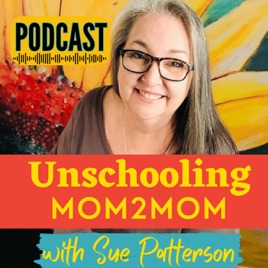
4.9
69
131
Unschooling Mom2Mom
Sue Patterson

4.8
315
213
Neurodiversity Podcast
Emily Kircher-Morris
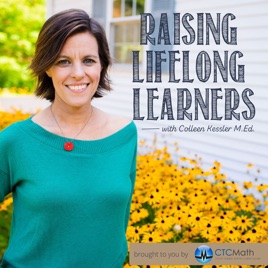
4.9
182
100
Raising Lifelong Learners
Colleen Kessler
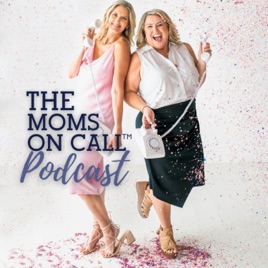
4.7
184
137
MOMS ON CALL
Moms on Call LLC & tentwentytwo

4.5
125
265
Dr. Ross Greene
Dr Ross Greene

4.7
553
76
The RV Atlas Podcast
RVFTA Podcast Network

4.9
1364
240
The PedsDocTalk Podcast
Dr. Mona Amin
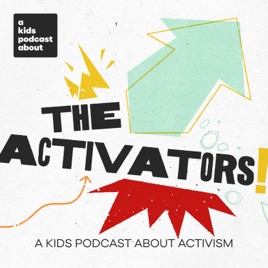
4.9
15
11
The Activators!
A Kids Podcast About
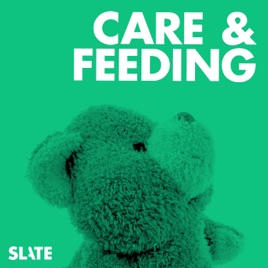
4.4
987
570
Care and Feeding | Slate's parenting show
Slate Podcasts

4.9
669
273
Messy Family Podcast : Catholic Conversations on Marriage and Family
Mike and Alicia Hernon : Catholic Marriage Parent and Family




